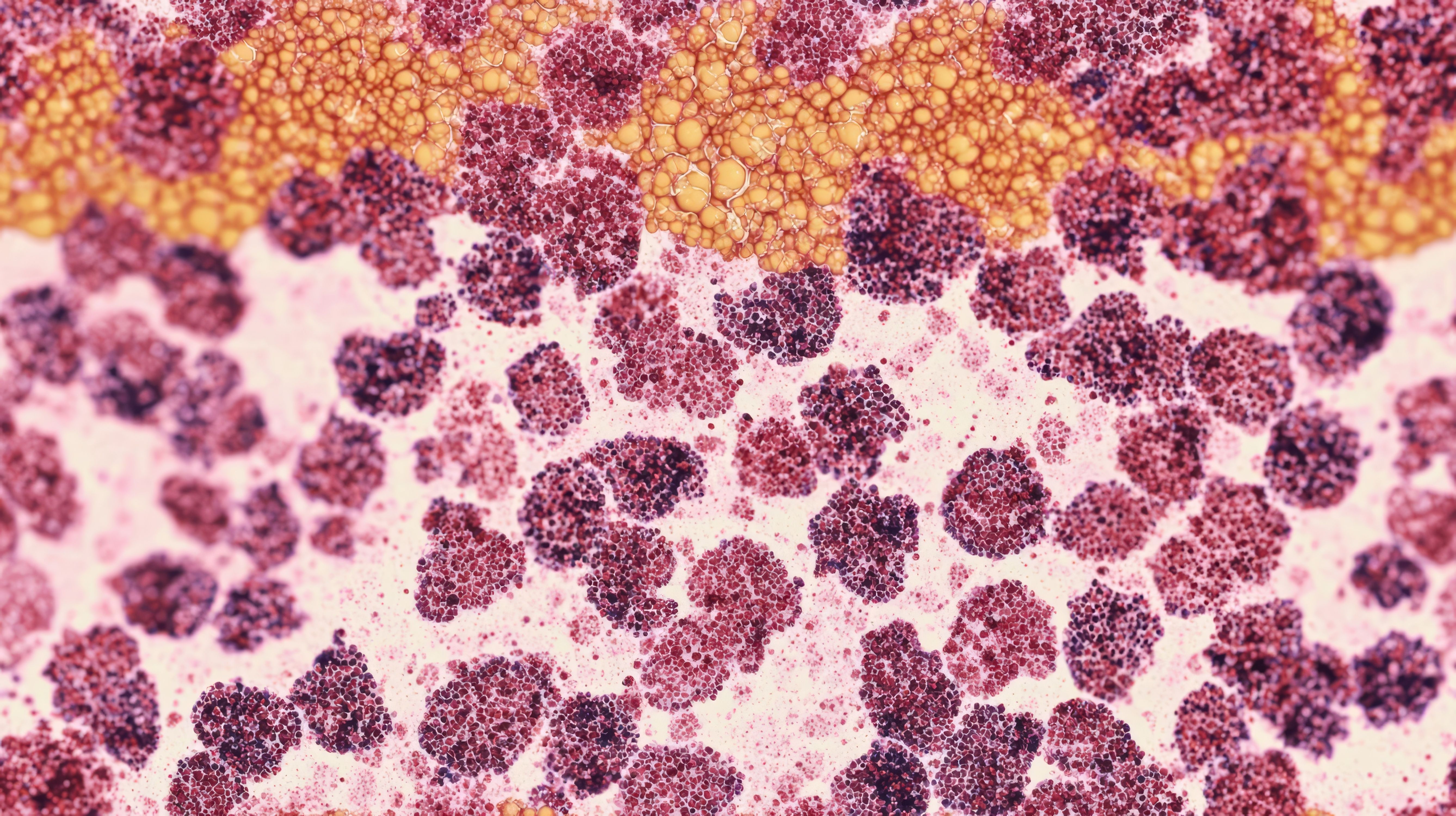News
Article
ImCheck’s ICT01 Earns FDA Orphan Drug Designation for AML
Author(s):
Key Takeaways
- ICT01, targeting BTN3A, activates T-cells and has received FDA orphan drug designation for AML, indicating its potential in addressing unmet clinical needs.
- Phase 1 trials showed ICT01's tolerability and efficacy, with rapid T-cell activation and no dose-limiting toxicities, supporting further research.
ImCheck's ICT01 gains an orphan drug designation from the FDA, offering hope for acute myeloid leukemia (AML) treatment in older patients with limited options.
ImCheck Therapeutics recently announced that ICT01, a first-in-class humanized antibutyrophilin 3A (BTN3A) monoclonal antibody designed to trigger T cells, has received FDA orphan drug designation (ODD) for the treatment of acute myeloid leukemia (AML).1 AML, which is characterized by uncontrolled growth of immature myeloid cells in the bone marrow, remains a therapeutic challenge, especially for patients ineligible for intensive induction chemotherapy, such as those aged 75 years or older or with significant comorbidities.2 The ODD status reflects the FDA’s recognition of ICT01’s potential to meet an unmet clinical need in a rare and serious disease setting.3
Image Credit: LASZLO | stock.adobe.com

ICT01 binds to BTN3A, which is overexpressed on various cancer cells, selectively activating T-cells—key players in innate antitumor immunity.1 Previously, the FDA granted fast track designation to ICT01 when used in combination therapy with azacitidine (Onureg; Bristol Myers Squibb) and venetoclax (Venclexta; AbbVie) for first‑line AML in patients deemed unfit for standard induction therapy.4 The fast track pathway enhances FDA collaboration and may accelerate review and approval processes.
Data from the phase 1 dose-escalation portion of the EVICTION trial (NCT04243499) demonstrated that ICT01 administered every 21 days at doses up to 75 mg was well-tolerated, with no dose-limiting toxicities reported. Preliminary pharmacodynamic assessments showed rapid activation and migration of T-cells within hours of dosing. Following these encouraging results, in October 2023, 29 previously untreated patients with AML considered medically unfit were enrolled in a randomized dose-optimization cohort combining ICT01 with azacitidine and venetoclax.4
The ODD allows access to benefits such as FDA fee waivers, tax incentives, and extended market exclusivity postapproval.3 Coupled with its existing fast track status, ICT01 is well-positioned for accelerated development toward a potential new therapy option in AML. Updated efficacy and dose data were presented at the 2025 American Society of Clinical Oncology (ASCO) Annual Meeting.
Strategic Importance for Pharmacists
Pharmacists should view ICT01’s ODD as a signal of progress in AML treatment, a field where therapeutic options remain limited for older, frailer patients. The combination approach with azacitidine and venetoclax is particularly relevant, as pharmacists facilitated management of these regimens in outpatient and inpatient oncology settings. ODD also underscores the future need for pharmacist readiness in formulary planning, specialty pharmacy coordination, and medication safety monitoring.
Path Forward and Ongoing Research
The manufacturer is preparing updated phase 2a data, including comprehensive safety and efficacy results, which were presented at ASCO 2025 in June. Additionally, the EVICTION trial continues to gather longitudinal data on response durability, survival outcomes, and quality-of-life measures information that will influence eventual labeling and potential Risk Evaluation and Mitigation Strategy considerations. These developments will guide pharmacists on dosing regimens, drug interactions, and supportive care nuances as ICT01 progresses toward approval.1,4
The ODD marks a significant milestone in ICT01’s development, validating its innovative mechanism and therapeutic potential in AML.1 Pharmacists should monitor upcoming trial data, remain current on regulatory milestones, and prepare for ICT01's role in evolving AML treatment landscapes. With an ODD and fast track designation, ICT01 is poised to address an area of critical unmet need and represents a promising advance for both patients and pharmacy practice.
REFERENCES
Imcheck Therapeutics, https://www.imchecktherapeutics.com, 2019. ImCheck’s ICT01 Receives FDA Orphan Drug Designation for Treatment of Acute Myeloid Leukemia. Imcheck Therapeutics. Published July 18, 2025. Accessed July 18, 2025. https://www.imchecktherapeutics.com/all-press-release/news/imchecks-ict01-receives-fda-orphan-drug-designation-for-treatment-of-acute-myeloid-leukemia/
ImCheck’s ICT01 Receives FDA Orphan Drug Designation for Treatment of Acute Myeloid Leukemia. Yahoo Finance. Published July 18, 2025. https://finance.yahoo.com/news/imcheck-ict01-receives-fda-orphan-090000144.html?guccounter=1&guce_referrer=aHR0cHM6Ly93d3cuZ29vZ2xlLmNvbS8&guce_referrer_sig=AQAAAMQYK5NKET977It_SPCBAuFhjdrESYS3gRxKMaYfOHb9DWVwevYv73JQmYivTzMuOkKeFpyLHggUN7Yo5vbrANGvGJ0AEwAes-EJa-Ze1P51Fsol4DCEPa5cA6BdysO8Pf-MA3NwEbpzL-_stifPQvhrcilsNVcIp9gvaXSz3Fsz
Gerlach A. FDA Grants Fast Track Designation to ICT01 in Combination With Azacitidine and Venetoclax for Acute Myeloid Leukemia. Pharmacy Times. Published September 18, 2024. Accessed July 18, 2025. https://www.pharmacytimes.com/view/fda-grants-fast-track-designation-for-ict01-in-combination-with-azacitidine-and-venetoclax-for-acute-myeloid-leukemia
ImCheck Announces Oral Presentation of Updated ICT01 Efficacy Data in First-line AML at the ASCO Annual Meeting 2025. BioSpace. Published April 24, 2025. Accessed July 18, 2025. https://www.biospace.com/press-releases/imcheck-announces-oral-presentation-of-updated-ict01-efficacy-data-in-first-line-aml-at-the-asco-annual-meeting-2025
Newsletter
Stay informed on drug updates, treatment guidelines, and pharmacy practice trends—subscribe to Pharmacy Times for weekly clinical insights.





